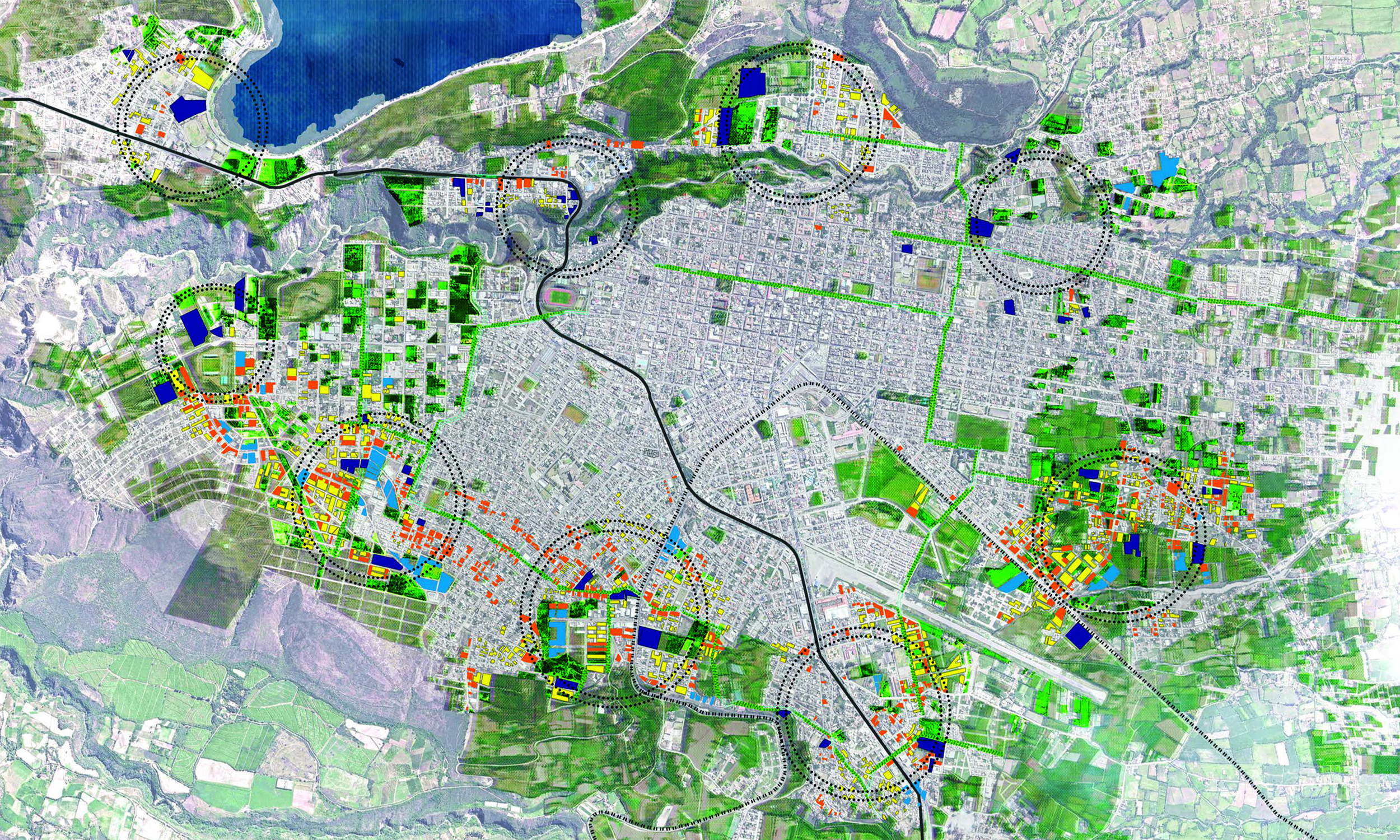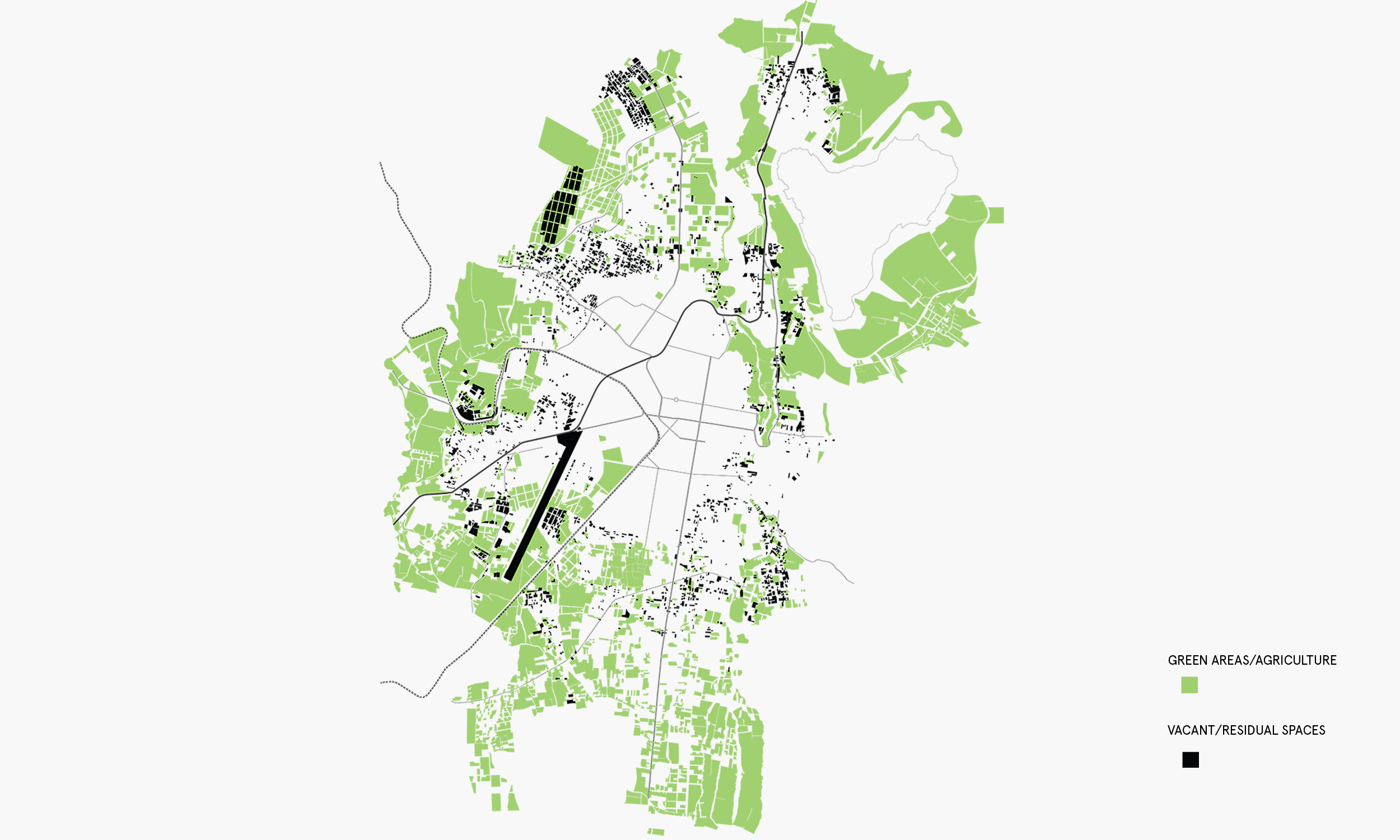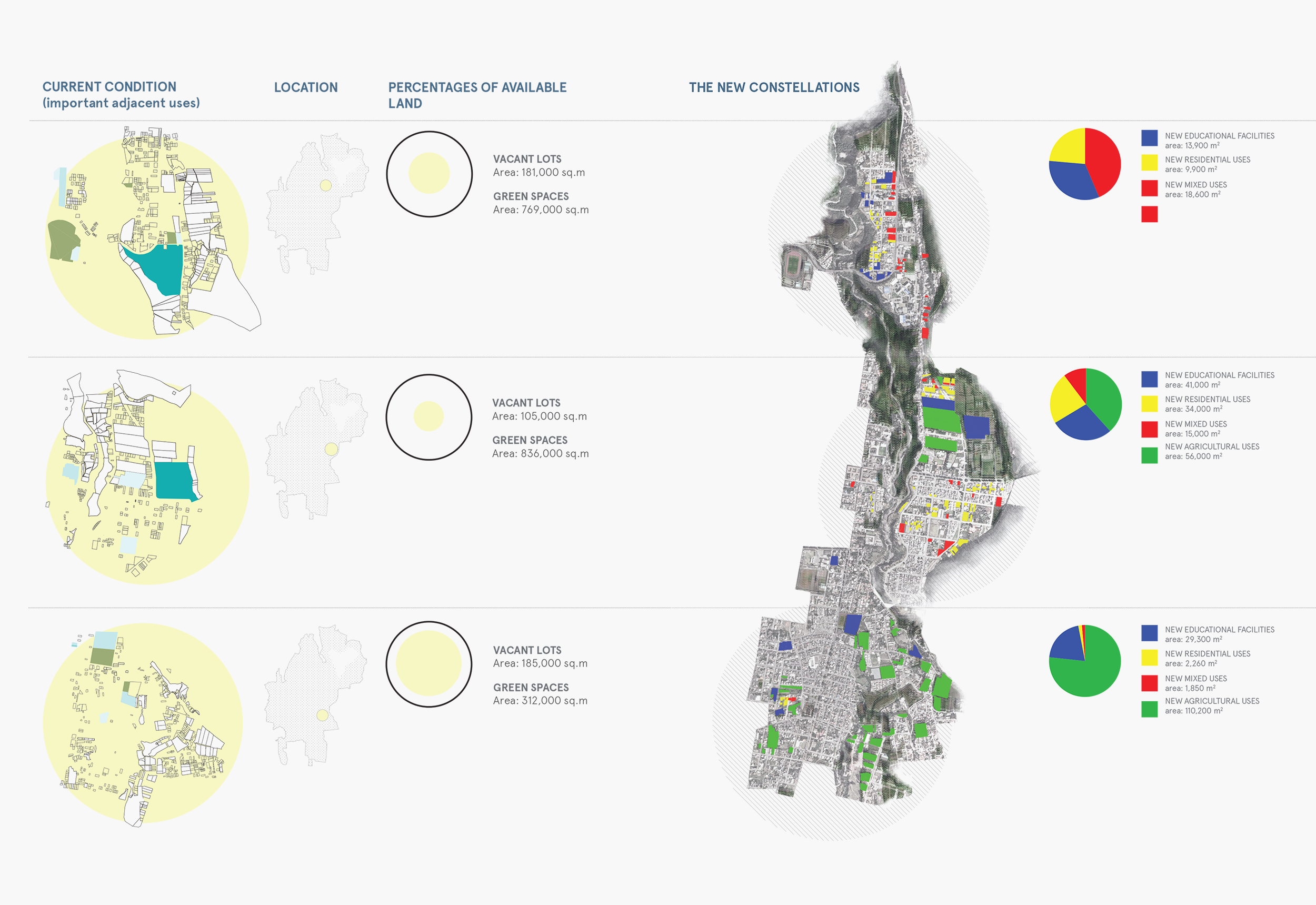Yachay
The Case of Yachay
Terreform interrogates the logic and fantasy of the technopole as an instrument of development, by studying the specific case of Yachay, a new knowledge city in northern Ecuador. Such cities are being produced across the globe, particularly in Asia, as US universities are locating satellite campuses hermetically sealed off from the geopolitical and economic realities of the region.
We question these forms of growth by isolating the development of scientific knowledge and technological prowess from the surrounding community, its needs, and its well-being. We argue that the production of knowledge should not be an isolated endeavor dividing intellectual elites from proletarians, and show how this practice can be given shape through spatial development and integration. In Yachay, we are analyzing economic, political, social, environmental conditions and urban morphology.
Applying our own experience in proposing a disaggregated knowledge campus, like the Thinklink in our Gowntown project which integrates higher educational institutions with their neighborhoods in Upper Manhattan, we turned our attention to the historic city of Ibarra in the vicinity of the Yachay development. Our proposal stems from the potential for a colonial-style engagement between Yachay and Ibarra. We therefore extensively analyze existing urban and ethnic enclaves, open spaces, and building typologies within Ibarra and present an alternative spatial model—a disaggregated and distributed campus, spread throughout Ibarra, combining indigenous and formal scientific knowledge systems in space.
Our work will be published as a volume in the UR series, Why Yachay? Cities, Knowledge, and Development, which will include additional essays situating the Ecuadorian Technopole in the global context.


